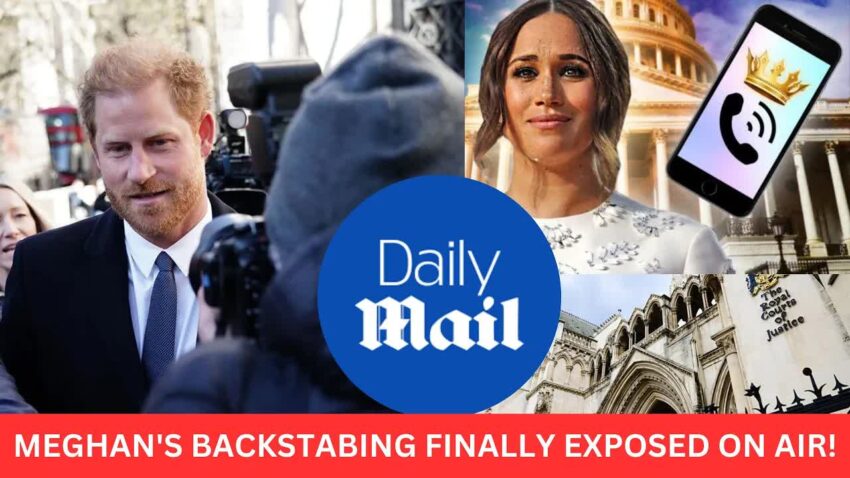Prince Harry has recently made shocking allegations against the Royal Family, claiming that they deliberately kept him in the dark about phone hacking incidents to prevent him from taking legal action that could expose their secrets.
In a revealing witness statement submitted as part of his civil claim against Associated Newspapers, the Duke of Sussex disclosed that he was discouraged from speaking out against the media due to the family’s strict policy of never complaining or explaining.
However, he asserted that he became aware of his potential claim in 2018 and accused the institution of concealing crucial information regarding phone hacking by News Group Newspapers.
The Prince, referring to the Royal Family as “the institution” in his submission, emphasized that he only realized the extent of the cover-up in recent years as he pursued legal recourse independently.
He disclosed that there was a lack of transparency within the family regarding who had filed claims against the press, highlighting the fragmented communication structure within the institution.
Despite assumptions of close coordination, Prince Harry clarified that offices operated in isolation, with little sharing of information among members or associates.
Expressing his motivation for taking legal action, Prince Harry cited his love for his country and his deep concerns about the unchecked power and criminal behavior of media publishers.
He emphasized the importance of exposing the truth and holding those responsible for privacy breaches to account.
The Duke’s decision to pursue the lawsuit reflects his commitment to transparency and justice, underscoring his resolve to challenge the publisher’s influence and criminality.
Among a group of claimants, including prominent figures like Sir Elton John and Sadie Frost, Prince Harry stands firm in his quest for justice and accountability.
The accusations against Associated Newspapers allege multiple violations of privacy, which the publisher vehemently denies.
The unfolding legal battle sheds light on the complexities of media intrusion and the challenges faced by public figures in safeguarding their personal information from invasive practices.
As Prince Harry’s revelations reverberate through the corridors of power, Buckingham Palace has chosen to remain silent on the matter, declining to comment on the Prince’s allegations.
The implications of his statements are far-reaching, raising questions about the Royal Family’s involvement in managing media scrutiny and protecting its members from unwarranted intrusions.
The unfolding saga underscores the tensions between privacy rights and press freedom, highlighting the delicate balance that public figures must navigate in the age of relentless media scrutiny.
In the court of public opinion, reactions to Prince Harry’s claims vary, with many expressing support for his efforts to hold media outlets accountable for unethical practices.
The upcoming developments in the legal proceedings are eagerly anticipated, with speculation rife about the potential impact on the Royal Family’s reputation and the broader media landscape.
The Prince’s bold stance against media malpractice signals a new chapter in his ongoing battle for transparency and integrity in journalism.
As the lawsuit unfolds, the spotlight remains firmly fixed on Prince Harry and his pursuit of justice, challenging the status quo and demanding accountability from powerful media entities.
The unfolding drama promises to unravel long-held secrets and shed light on the murky world of tabloid journalism, exposing the underbelly of media manipulation and intrusion.
The Prince’s unwavering commitment to truth and justice serves as a rallying cry for greater transparency and accountability in media practices, resonating with those who seek to uphold ethical standards in journalism.
